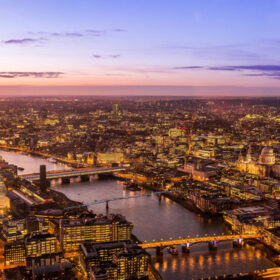According to UKHospitality, the end of business rates relief will sting the sector with a £928 million (US$1.2bn) bill in April unless the government addresses the looming cliff edge.

If business rates relief ends as planned on 31 March, hospitality and leisure businesses will face quadrupling bills, totalling tens of thousands of pounds per venue.
A local pub could see an increase of £11,000 (US$14,400), a town centre restaurant an additional £30,000 (US$39,400), and a seaside hotel could be left with a £40,000 (US$52,500) increase.
UKHospitality, the leading trade body for the sector, is calling for the Chancellor to introduce a new lower, permanent and universal rate for hospitality business rates at the budget on 30 October.
The organisation claims the current business rates system unfairly penalises hospitality, with the sector paying three times more than it should. In its manifesto, Labour committed to replacing the system and levelling the playing field between the high street and online giants.
A lower, permanent, and universal rate, or ‘multiplier,’ for hospitality would be a critical first step in delivering that change.
Kate Nicholls, chief executive of UKHospitality, said: “Hospitality businesses are facing a devastating cliff edge next April when many will see their bills quadruple. The scale of this almost billion-pound tax bombshell is just not viable. Many will face the risk of closure, be forced to let people go to stay afloat or shelve their investment plans.
“The dangers of not acting are stark – whether you’re a pub, coastal hotel or soft play centre for kids and families. At the budget, the Chancellor can choose to act and take the brakes off the sector’s growth by avoiding this cliff edge. I hope she does just that because inaction could be fatal for many businesses.”
A dire need for reform
Operators of all types have warned of the detrimental impact an end to relief without another solution would have on their investment plans, business viability, and the communities they serve.
Safari Play Venues is a small family-run business that operates two soft play venues in Milton Keynes and Peterborough. Gordon Forster, its owner, said business rates already account for up to 10% of its turnover, and if relief ended and there was no solution, it would be facing £95,000 (US$124,800) in additional rates.
Gordon said, “Business rates support has allowed us to keep trading, employing staff, and paying taxes – all of which positively support the government finances. Not addressing business rates could destroy many hospitality and leisure businesses. We have Covid loans to pay, and we put everything on the line to survive, including our house.
“The government must avoid a business rates cliff edge that will cost jobs, investment and community wellbeing. It’ll also impact the mental health of business owners who suddenly have to find tens of thousands of pounds.”
Another business owner, Roxane Marjoram, who co-owns several pubs in and around Suffolk with her husband David, said the potential quadrupling of rates bills fills her “with dread”.
She said: “A quadrupling of rates bills if the current relief ends will fill all small operators like us with dread. Even though we’re operating in an environment with significantly higher costs post-Covid, pubs and restaurants like ours can and will play a strong part in economic recovery if we’re supported with fair rates bills.
“A new lower, permanent and universal business rates multiplier for the whole sector, as proposed by UKHospitality, will help give us much-needed certainty looking forward.”
The owner of Thurlestone Hotel in Devon, Tim Hassell, would have to find £110,000 (US$144,500) if relief ended in April.
He said: “In a year when we have seen a drop in demand and extra costs on almost everything, we have seen profits drop to the break-even point. A huge rise in our business rates bill would have a massive impact, particularly on our investment plans. The current business rates system unfairly penalises property-based businesses like ours. It’s in dire need of reform.”
Earlier this month, mental health tool R;pple announced it had polled 2,010 UK hospitality workers – including chefs, bartenders, front of house and waiting staff – in August, revealing that around half of workers have thought of suicide, self-harm or other harmful, negative thoughts at work.
In August this year, it was revealed that the Treasury lost nearly £300 million (US$393m) in tax revenue in the past year after spirits duty in the UK rose by double digits.
Related news
Liverpool’s Burnt Milk Hotel becomes Bar Glue
